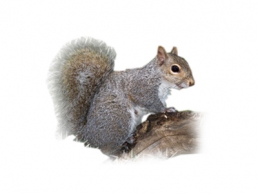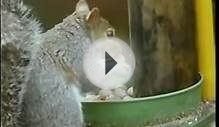
 Squirrels in the attic? Squirrels in your crawl space or eaves? Those scurrying sounds in the attic may well be Gray, Fox, Flying or Pine squirrels - which love to invade attics, and occasionally walls of structures. Call today for removal solutions to rid your home of squirrel problems!
Squirrels in the attic? Squirrels in your crawl space or eaves? Those scurrying sounds in the attic may well be Gray, Fox, Flying or Pine squirrels - which love to invade attics, and occasionally walls of structures. Call today for removal solutions to rid your home of squirrel problems!
Description
Pest squirrels are divided into three groups for classification: tree, ground, and flying squirrels. Species that fall into all three groupings have the capacity to cause destruction on lawns and in homes. Some of the more common species that regularly come into contact with humans and manmade structures include fox squirrels, eastern gray squirrels, and red squirrels.
Appearance
The average adult squirrel may be anywhere from 12 to 25 inches (30 to 64 cm) long. As avid climbers, pest squirrels are typically muscular and have sharp claws. Their coloration varies greatly to include shades of black, gray, red, and brown. Squirrel fur is short, thick, and bushiest along the tail. The underbellies of most pest squirrels differ in color from the coats on their backs.
Habitat
With a diet mostly comprised of nuts, seeds, flowers, herbaceous plants, and fungi, pest squirrels prefer to inhabit forested areas throughout the contiguous United States, Northeastern Mexico, and Southcentral Canada. Some species of Nearctic squirrels have also been introduced to European countries like Italy, Scotland, England, and Ireland, where they are considered invasive pests.
Though most squirrels orient themselves around the presence of trees, their chosen nesting sites vary from species to species. Fox squirrels, for example, prefer oak, pine, and mixed forests where the trees are widely spaced. Conversely, eastern gray squirrels live in forests where the trees allow for travel among the upper layer of leaves and branches, as they rarely move along the ground. Most species of squirrels build nests out of leaves and branches or use tree cavities as shelter.
Entry
Are squirrels known to enter homes or yards?
Squirrels are very common in residential areas and are often found in the yards and homes of humans. As overwintering pests, squirrels sometimes find their way into the attics of homes where they build nests and enjoy protection from cold weather. Yards with plenty of foliage are attractive to squirrels, who view trees as both a source of food and shelter.
Damage
Do squirrels harm people or property?
As non-aggressive creatures, squirrels are capable of relatively peaceful cohabitation with humans. However, they also have the capacity for destruction. In yards, squirrels will dig up buried nuts and seeds, which leaves holes and disrupts the overall presentation, and chew the bark of ornamental trees and shrubbery. They also trample on and eat from gardens, feed on the contents of birdfeeders, and chew on birdhouses.
Inside homes, squirrels nest in attics and can chew and gnaw on wooden support beams and walls. They also endanger themselves and humans in the immediate area by chewing on electrical wires. Additionally, squirrels often travel on powerlines, which can lead to electrical shorts.
Control and Safety
Modifying homes and yards to make them less favorable to squirrels is the best form of squirrel control. Homeowners should ensure any broken window screens and cracks leading into attics are repaired. Check chimneys as a possible point of entry, and seal them with mesh coverings. Keep trees trimmed so that branches don't hang over roofs and so squirrels cannot reasonably hide within the vegetation, and protect gardens with fences.
Trapping and Removal
As squirrels are considered game in many states, trapping the pests may require the procurement of a special permit. Furthermore, though squirrels are not known to be particularly aggressive, it is always safer to contact a trained professional rather than attempt to handle wild animals without the proper knowledge or assistance. The wildlife specialists at Critter Control are skilled at identifying the different species of squirrels and handling squirrel removal properly and humanely. Our job is to protect people, property and wildlife and in doing so, we don’t exterminate squirrels, but instead we humanely exclude or remove them from your property
RELATED VIDEO












